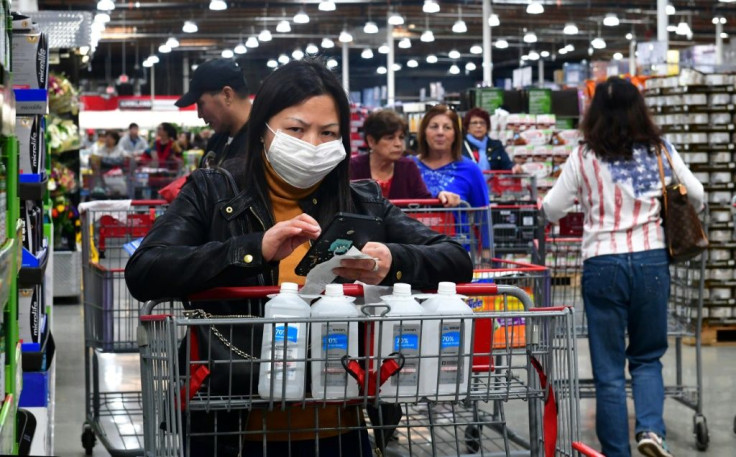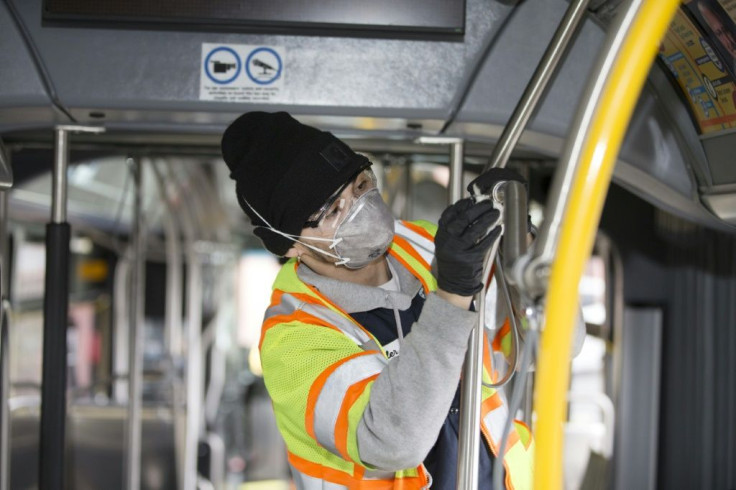Workers In US Gig Economy Most Vulnerable To Virus Outbreak
They are on the front lines of the coronavirus outbreak, yet have the least protection against it: workers in the US gig economy, living paycheck to paycheck, have no choice but to show up to work, despite the growing risks of contagion.
Cleaners, waiters, delivery or ride-share drivers, home-help, receptionists, bar staff, construction workers, porters: millions of Americans lack any financial safety net if they are not able to work.
Health authorities are advising people to "self-isolate," but for these workers, that means running the risk of eviction because they cannot pay their rent, or living without power because they cannot afford electricity.
"They cannot go without a paycheck. They do not have money in a savings account that will let them pay their rent if they don't work for a couple of weeks. They have no way to cope with this," said Eileen Appelbaum of the progressive Center for Economic and Policy Research.
That is the case for Xavier Pressley, a 36-year-old African American working for the logistics firm CRST at the One World Trade Center in New York.

"My paycheck pays my rent and all my bills," he said. "I can't afford to get sick right now."
Unlike in Europe, paid sick leave is a luxury in the United States, where 55 percent of workers in the hotel and restaurant trade do not have access to it, according to the Economic Policy Institute.
These workers often also lack health insurance which would cover the costs of testing for the virus, and so carry on working. That makes them more exposed to the disease, and more likely to spread it if they become infected.
"These workers are going to come in unless they themselves are too sick to work because they have no savings," said Appelbaum. "They have no way to feed their children if they don't draw a paycheck every single week."
She said school closures could hurt such people even more, as often their kids receive their main meals from school.

If paid sick leave is not federally mandated, a handful of mostly Democratic-run states do have it, such as New York and Washington. The amount of paid leave depends on how long an employee had been with a firm and the number of hours they work.
It is rarely more than nine days, which is short of the 14-day minimum quarantine period recommended by the health authorities, experts told AFP.
Faced with a disease for which there is no vaccine and no proven treatment, US unions and NGOs are calling for a plan to help gig workers.
They want a ban on evictions for anyone who has to miss work, uninterrupted access to drinking water and electricity and any benefits that might have pertained before the crisis, such as health insurance.
Some are also calling for emergency aid funds similar to those used to bail out farmers during the US trade war with China.
"If people are losing hours and they're getting smaller paychecks or maybe even experiencing temporary layoffs, that will not only impact their ability to pay rent and maintain their health insurance and buy food, but it may have a longer ripple effect on our economy," warned Amanda Ballantyne of the Main Street Alliance.
She said if consumers stop spending for fear of financial uncertainty that could hurt an economy already rattled by a market plunge and a crash in oil prices.
After days of prevaricating and an initial plan to spend $8 billion on fighting the coronavirus, President Donald Trump was expected to announce an economic stimulus package later Tuesday.
While waiting for that to happen, the banks are offering some leeway to clients unable to pay their bills or credit cards.
"This is a rapidly evolving situation and we want our customers to know we are here to provide assistance should they need it," said Anand Selva, head of the consumer affair division at Citibank.
© Copyright AFP 2024. All rights reserved.







